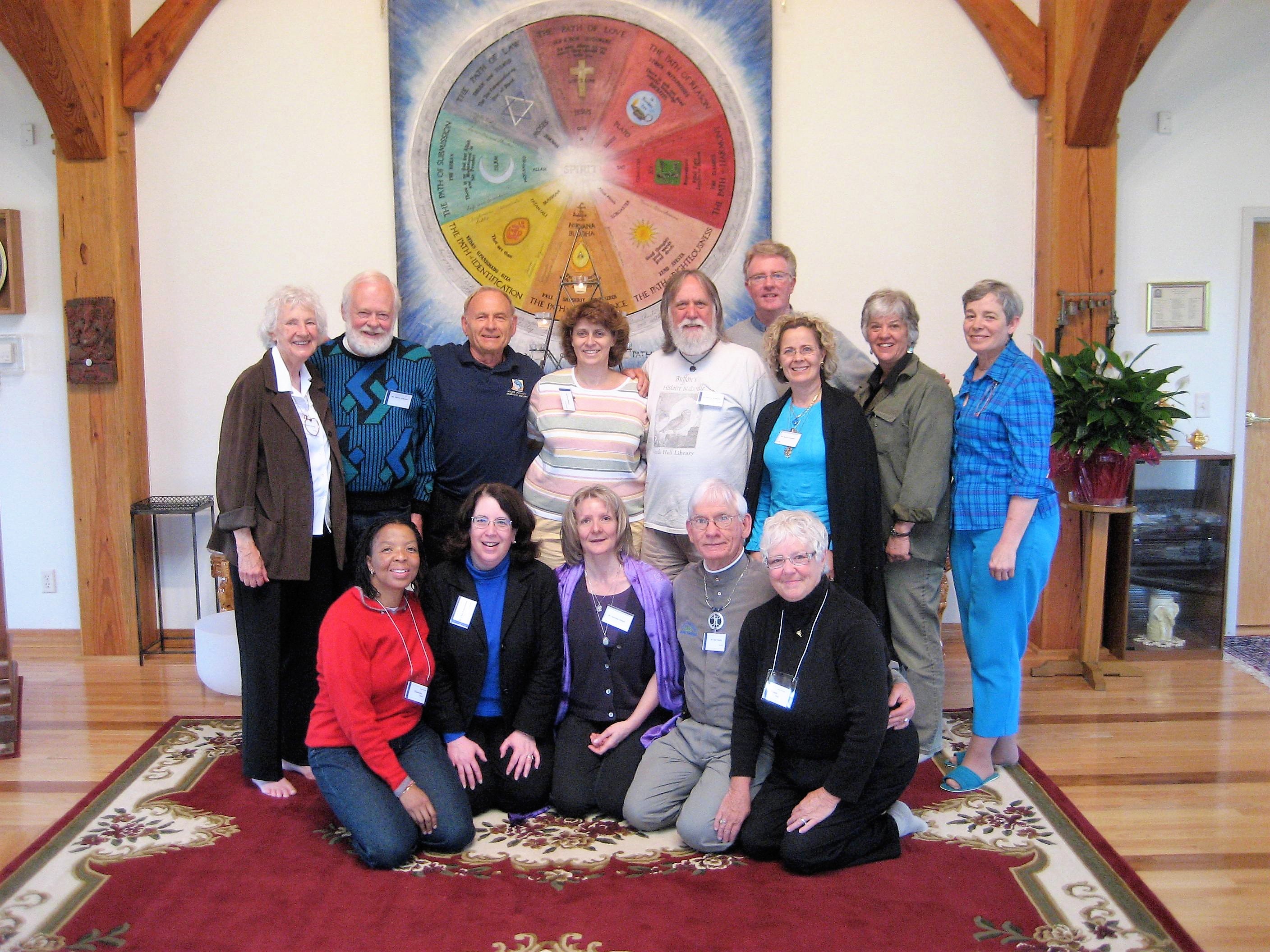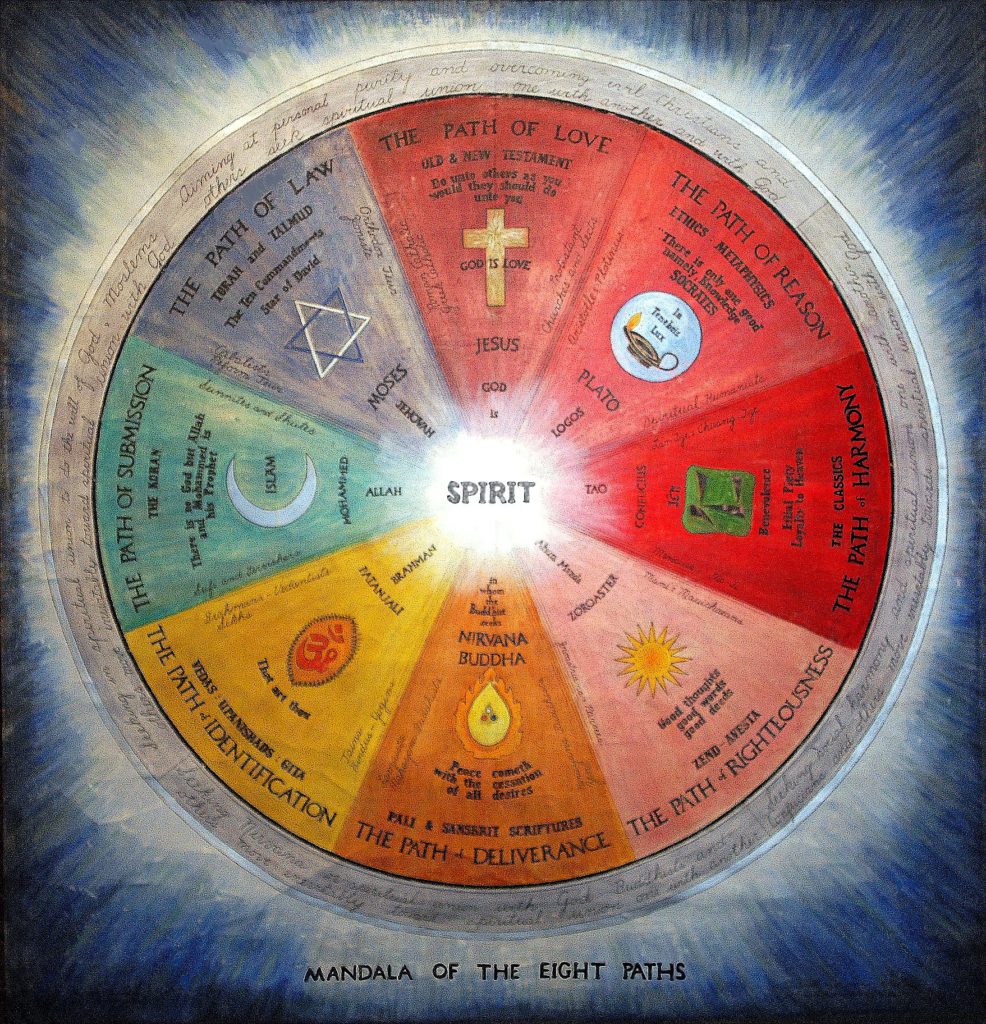Religion and Theology
Theology is a discipline that attempts to express the content of a religious faith as a coherent body of propositions. The word theology is derived from Greek – theos meaning God or Higher Being; logos meaning knowledge or study. It pertains to God or our idea of Higher Being and God’s relation to the world. The word is usually taken to refer to the Christian faith, although it is sometimes extended by analogy to cover other creeds, since Christianity originated the term in its present meaning.
Angus states;
“The thing that Christians called faith embraced the noetic quality of conviction, or belief, the moral quality of steadfastness, loyalty, and the religious quality of absolute trust in a person.”
Theology is narrower in scope than faith, for whereas faith is a total attitude of the individual, including will and feeling, theology attempts to bring to expression in words the elements of belief that are explicitly or implicitly contained in faith. Faith was not the new concept that came along with Christianity, even though is regarded as the root principle of Christianity. Angus affirms that it existed in higher and lower forms throughout the history of religion. We are further informed that men previously had faith in the deity, in providence, in the power of truth, in the victory of good over evil.
The origin of religion is traced to the dawn of human history. Goodman did a splendid work in dissolving the illusion that there are two kinds of religions. This assumption was based on the qualitative assessment that classified them as “great” and “primitive” religion. The great religions of the world are considered to be valid, possessing Truth or at least part of it, and primitive religion considered to be “a collection of superstitions” and magic. It is important to awaken to the truth that Religion is shaped by culture of the respective society; ritual, religious trance and alternate reality form the heart piece around which community life is constructed. These universal striking traits are shared by all religions and meet their needs for ecstatic experience.
Goodman summarizes it beautifully,
Religion is an ancient part of human culture. It shares cross-culturally a set of universals, namely ritual, the religious trance and its attendant ecstasy, the alternate reality, ascription to the alternate reality of changes in fortune and rituals of divination, a system of ethics, and a tripartite named category. These universals are dependent variables of the interaction with the habitat. Religions vary systematically with societal type, that is, in correlation with modifications in the interaction with the habitat.
All these societies performed rituals as part of worship; transporting them into another plane of reality. The “primitive” societies have their own creation tales upon which they base their religious belief and it contradicts the Judeo-Christian tradition. They perceive a “power” an all-encompassing spiritual essence. It is appropriate that their creation myth of “primitive” societies should be honored and not be considered creation myth because they are not in line with the Judeo-Christian tradition.

Many religious thinkers have held the belief that God is so different from finite beings that he must be considered essentially a mystery beyond the powers of human conception. Therefore this has resulted in different formulation of the concept of God in terms of divine attributes and paths of knowledge. Different approaches have been adopted namely: Philosophical, Religious, and Experiential Approaches in an attempt to unravel the mystery about the nature of God. In general, mystics, who claim direct experience of the Divine Being, have asserted the superiority of their knowledge of God to the rational demonstrations of God’s existence and attributes propounded by philosophers and theologians.
Lao-Tzu a mystic said, “The Tao source of life that we often talk about is beyond the power of words and labels to define or enclose.”
He keenly observed the world around him and recorded what he saw, combined it with ancient shamanic rituals as a means of understanding the complexities of human experience.
Sitchin is counted amongst one of a handful of scholars able to read the Sumerians cuneiform tablets, Sumerian texts are the first written history of mankind. He explains more of the fundamental scientific and spiritual mysteries of our ancient past and present culture, fills in some of the blanks that many modern ideologies and theologies have left in ones’ mind, especially when one reads the book of Genesis as recorded in the bible. It is worth noting that there are lost books of the bible and the forgotten books of the Eden which were suppressed by the early church who compiled the Bible. These Apocryphal Books have for centuries been shrouded in silence. Sitchin lays it all out; from the Biblical text to ancient Sumerian writings and obscure writings, to reveal that in ancient times, beings from other worlds did indeed visit and influence our ancient civilizations greatly.
According to Sitchin, the “inhabitants” of planet Nibiru, “The Anunnaki” as they were called in Sumerian, had landed on Earth 450,000 years ago; had colonized our lonely planet for their mining purposes; had searched for gold and other valuable materials which had been needed in their own planet for the sake of their “atmosphere”; and at one time, when they had needed “extra labor” they had created the mankind “in their own look”, by manipulating the genetic structure of the “ape man”. They naturally had become the “powerful gods” of our ancestors. Sitchin very convincingly creates a bridge between myth and science without causing them to overlap or distort each other. His main axis is a mysterious planet which belongs to our very own solar system, lurking in the depths of outer space but still “unknown” to us and somehow “hidden” in the mystical and “mythological” bulk of ancient sacred texts. He intuitively spots the “vague point” in myths, then clears the dust and mud carefully, points at this “surprising” planet which had been waiting to be discovered by us since millenia: This planet was called NI.BI.RU in ancient Sumerian, meaning “Planet Of Crossing”; had an orbital period of about 3600 years around the sun; and it was symbolized by the holy sign of “Winged Disk” in ancient cultures, as well as the cuneiform sign of “Shar”,meaning “3600” and “destruction”. He deciphers almost all the details about this huge planet and its “inhabitants” from a series of clay tablets, beginning with “Enuma Elish”, the Babylonian Creation Epic, with emphasisi on ancient symbolism. This finding alone is enough to make his theory one of the most significant approaches in ancient history.
When one considers the New Testament, there are some fifty-two texts declared to have been salvaged from the earliest Christian monastery in Egypt after the archbishop of Alexandria had ordered the monks to destroy all books he deemed “heretical” – that is, Christian sources not endorsed by the clerical authorities. It is important to examine the books of the Scriptures, which have an authorized version together with the Lost Books of the Bible, as it contain those scriptures which have been eliminated by various councils in order to make up the standard Bible. In doing so, the richness of their message made up of all kinds of stories, tales and myths are revealed.
Frank Crane affirms, “No great figure appears in history without myths growing up about him. Every great personage becomes a nucleus or center about which folk tales cluster.”
The historical figure of Jesus is largely unknown, despite his life and teachings having inspired a major religion, Christianity. The central beliefs of Christianity are the divinity of Jesus, his death to redeem humanity from its sins, and his resurrection three days after his Crucifixion. Jesus of Nazareth represents the great force behind Christianity. So many attracted by the personage of Jesus are interested to know any stories that may have evolved regarding him and the myths associated with such a great figure who profoundly impacted the world. It would be interesting to know what forms of stories and speculation revolve around Him in the early period of the Christian era.
The deliberate sanctioning of some scriptures has birthed the quest to uncover the hidden Truth. The stories on the boyhood of Jesus, instances of his personal life leading to his crucifixion are all important because of the central figure about whom they revolve. The ordinary man should be able access all information that put him in a position to fully understand the teachings of Jesus. In order to take place in a council chamber which either accepts or rejects the various writings of Scripture based on all the gathered information; the veil of secrecy needs to be taken away in order to allow thorough examination of the pile of information which allows one to do their own sifting. I believe the ordinary man was denied the privilege of seeing upon what grounds the commonly accepted Scriptures rest. For many years the act of the church in accepting certain Scriptures and rejecting others hampered spiritual growth and enlightenment.
The importance and influence of the Bible among Christians and Jews may be explained broadly in both external and internal terms. The external explanation is the power of tradition, custom, and creed: religious groups confess that they are guided by the Bible. In one sense the religious community is the author of Scripture; having developed it, cherished it, used it, and eventually canonized it (that is, developed lists of officially recognized biblical books). The internal explanation, however, is what many Christians and Jews continue to experience the power of the contents of the biblical books themselves. Ancient Israel and the early Church knew of many more religious books than the ones that constitute the Bible. The biblical books, however, were cherished and used because of what they said and how they said it; they were officially canonized because they had come to be used and believed so widely
In the year 324 CE Constantine became the ruler of the entire Roman Empire. For the first time a Christian emperor had ascended the throne, although there is some dispute about the depth of his faith. Some see him as a wily statesman who exploited Christianity for political purposes, while others maintain that the emperor believed wholeheartedly that he had been chosen by the Christian God and that Jesus was his protector and guardian and the cause of his victories in battle. Emperor Constantine (c.274 – 337) may have seen some phenomenon in the skies; the radiant cross appearing in the heavens, with the inscription, “By this thou shalt conquer”. It is argued that the motivating force behind his conversion was he needed some more powerful aid than his military forces could afford him, on account of the wicked and magical enchantments which were so diligently practiced by the tyrant. He sought Divine assistance, deeming the possession of arms and soldiers of secondary importance. He believed the co-operating power of Deity invincible and unshakable.
Emperor Constantine was no doubt convinced of the superior claims of Christianity as the rising religion; but his conversion was a change of policy, rather than of moral character. We are informed that even long afterwards his conversion he killed, his son, his second wife, several others of his relatives, and some of his most intimate friends, in passionate resentment of some fancied infringement of his rights. During his tenure, Emperor Constantine covered all his bases. There were series of edicts that were completed in order to grant Christians more privileges than any other group. Christians were admitted to the offices of the State, both military and civil; the Christian clergy was exempted from all municipal burdens, as were the Pagan priests; the emancipation of Christian slaves was facilitated; Jews were forbidden to keep Christian slaves, etc. An edict of 321 ordered Sunday to be celebrated by cessation of all work in public. When Constantine became master of the whole empire, all these edicts were extended to the whole realm, and the Roman world more and more assumed the aspect of a Christian state.
The favorable conditions imposed by Emperor Constantine (c.274 – 337) were strategically woven to gain control over Roman Empire and ensure that the control and manipulation of others is perpetuated further, for even today most government claim to base their governance on Christian morals and principles. This ideology of superiority, camouflaging like a chameleon by adopting many shades to ensure survival is ancient and can be traced back Emperor Constantine and many others who have contributed to shaping our history. As a result of his policy, combining unequivocal legislation giving preference to Christianity with impressive building projects, Jerusalem was transformed from a marginal pagan town into a flourishing Christian city and became a powerful magnet for pilgrims from the whole Roman Empire.
He saw that with Christianity was born a new sentiment in the human heart hitherto unknown to mankind, and that on this sentiment the throne could be rested more safely than on the success of a court-intrigue, or the victory of a hired army. The only rational legitimation which the antique world had known of the kingship was descent from the gods; but this authority had now become a barefaced lie, and was difficult to use even in the form of a flattery.
God or Supreme Spirit is not a concept, that requires human intellect to be known or understood, but a living reality. To know God is to know ourselves, for we are one with the Divine. The Divine Spirit is a living reality that dwells in us, it is in experiencing it that it blossom and the bud opens up to send that sweet smelling essence to the universe thus blending with essence of nature. Thay, a theologian advocates that it is safer to approach God through the Holy Spirit than through theology.
Thich Nhat Hanh states, “We have different roots, tradition and ways of seeing, but we share common qualities of love, understanding and acceptance. For our dialogue to be open, we need to open our heart, set aside our prejudices listen deeply and represent truthfully what we know and understand. To do this we need a certain amount of faith.”
Faith is the substance of the unseen, it does not rely only on our limited physical sense, and it is the deeper knowingness that transcends everything known to humanity. To walk by faith is to be awakened to the truth that resides in our heart for out of the abundance of our heart the mouth speaks. It resides within; searching for it outside is like chasing the wind. It is beyond human intellect and words are meaningless in expressing it, for it is heard in silence.
Thich Nhat Hanh attest, “Discussing God is not the best use of our energy”, Does it mean the study of God and religious belief is a fruitless exercise? Definitely not, it should be taken as a sign post serving the purpose of guiding us. Therefore, discussions do not birth the authentic experience, it is living the life of love, peace and forgiveness that we nurture each other and the spirit of Divine is nurtured. All great teachers taught by example, their deeds spoke louder than words.
Humanity tends to forget that the Divine is whole; therefore we are whole for we are all one. To fully comprehend wholeness, it cannot be experienced when viewing extremes, meaning, using opposites to find meaning, instead the miracle should be viewed as something that is continuously moving, unnamable and totally elusive. The authentic meaning as proposed in the teaching of Lao-tzu is established in the understanding that it is a formless form and a methodless that gives birth to an image of nothing. When you confront it, there is no face to look at. When you pursue it, there is no shape to follow.
REFERENCES and BIBLIOGRAPHY
Angus, Samuel MysteryReligion and Christianity (Kessinger Publishing).
Bright-Fey, John. The Whole Heart of Tao: The Complete Teachings from the Oral Tradition of Lao-Tzu. China: Cranehill, 2006.
Halsall, Paul Medieval Sourcebook, Eusebius: The Conversion of Constantine http://www.fordham.edu/halsall/source/conv-const.html
Goodman, Felicitas D. Ecstasy, Ritual, and Alternate Reality: Religion in a Pluralistic World. Indianapolis: Indiana University Press, 1988.
The Lost Books of the Bible and The Forgotten Books of Eden. New York: Alpha House, 1926
The Emperor Constantine and Jerusalem http://jeru.huji.ac.il/ed31.htm
The Holy Bible, King James Version, Book of Genesis and the New Testament
Sitchin, Zecharia, The Twelfth Planet, Santa Fe, Bear & Co., 1991.
Smith, Huston, The Illustrated World Religions: A Guide to our Wisdom Traditions, Harper, San Francisco, 1994.

